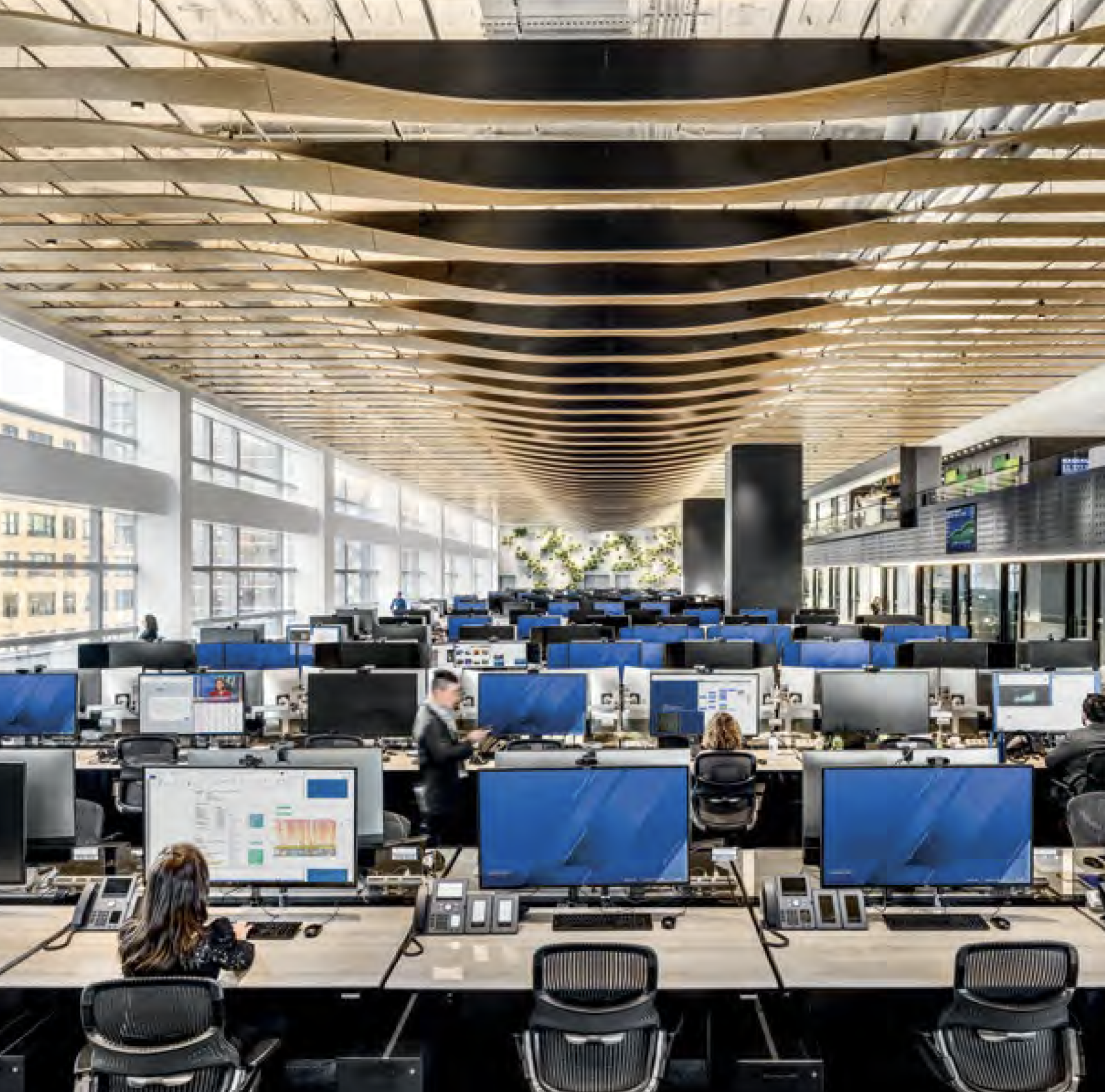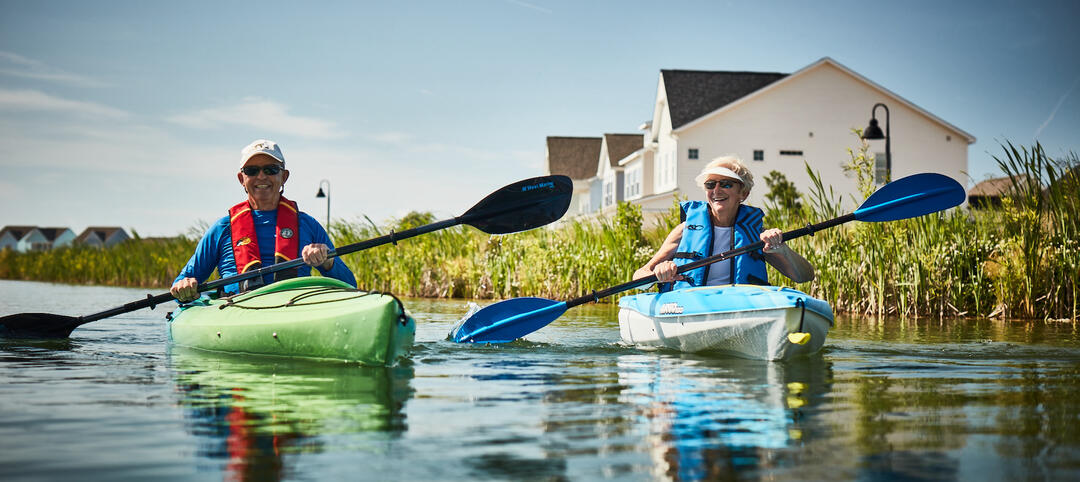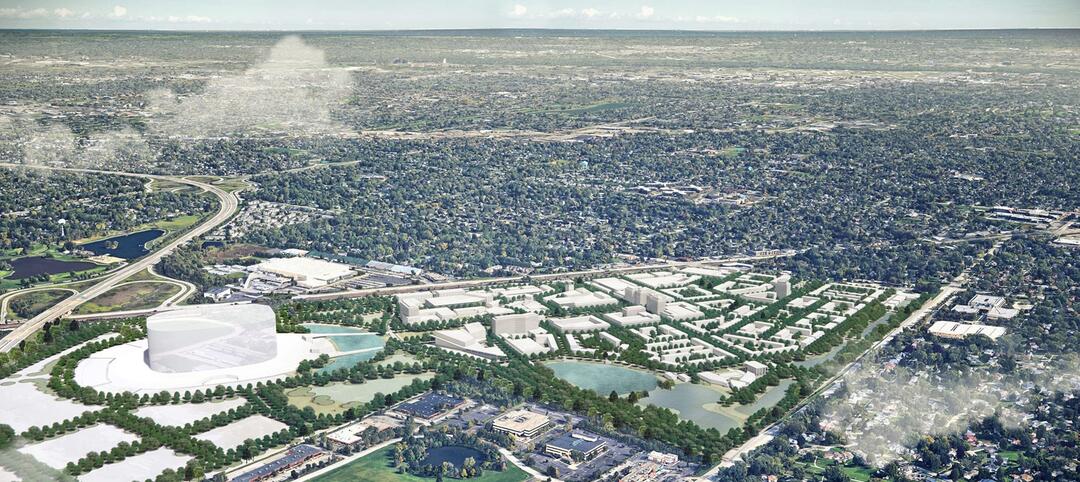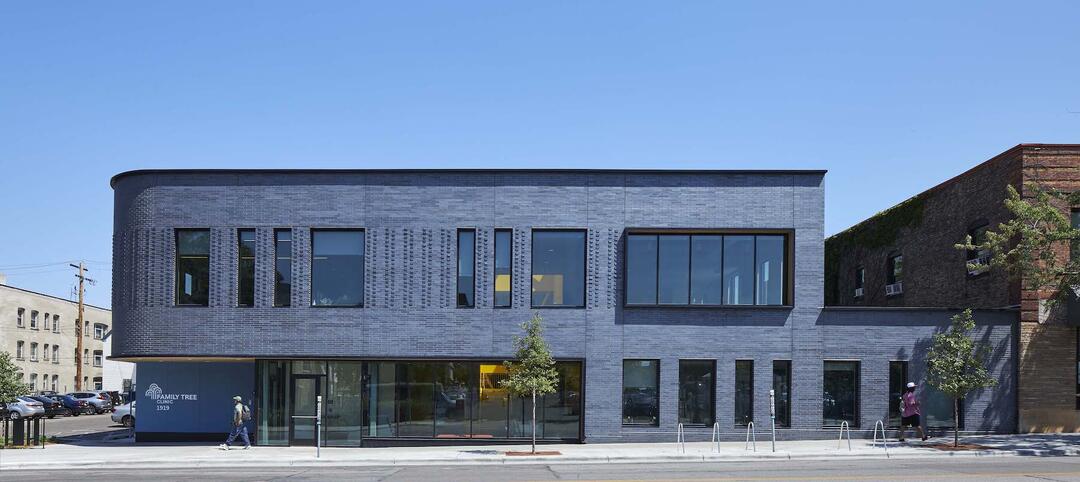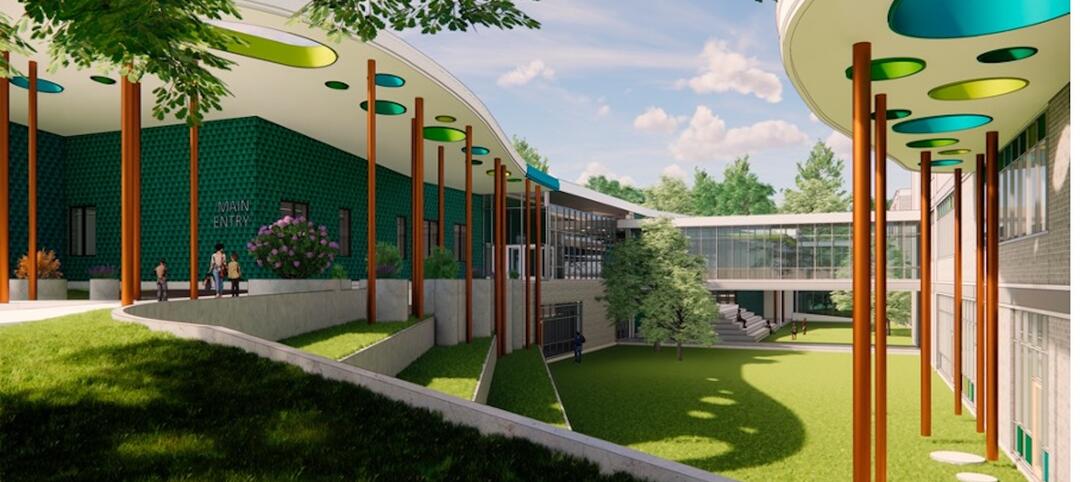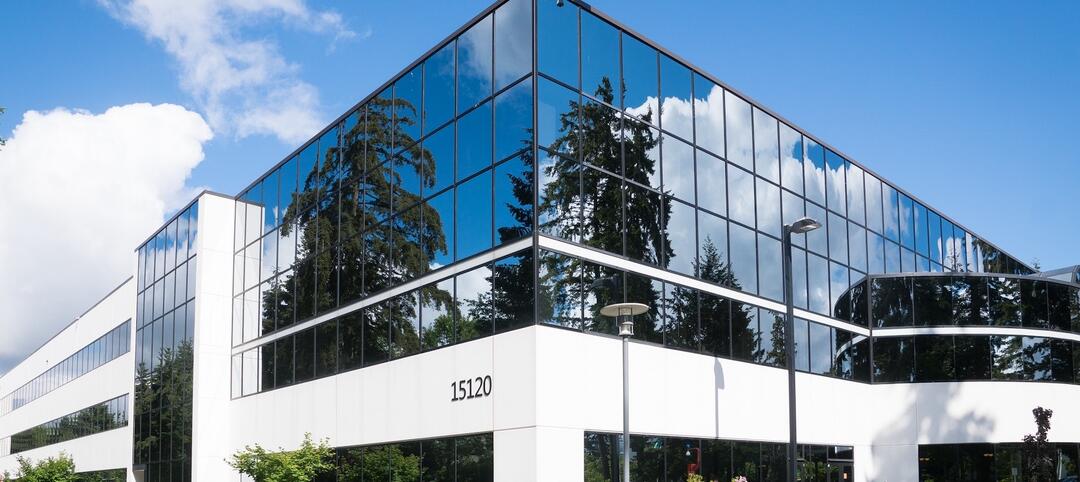Social equity and climate change are the elephants in the room hovering over Gensler’s Design Forecast for 2022, which the giant architecture firm released this week.
Drawing from a wide range of research sources, including its own, Gensler maps out what it sees as the top trends and strategies for its 28 practice areas, organized under the headings Cities, Work, Lifestyle, and Health. (The Report can be downloaded at https://bit.ly/3ILhHxf.)
The report is, in the main, optimistic, with dollops of wishful thinking. But Gensler, which generated $1.235 billion in revenue last year, is also clear-eyed and fact-informed about the challenges that lie ahead and the extent that design can help meet and exceed them. “An ongoing resilience is defining the built environment,” write the firm’s co-CEOs Diane Hoskins, FAIA, IIDA, and Andy Cohen, FAIA.
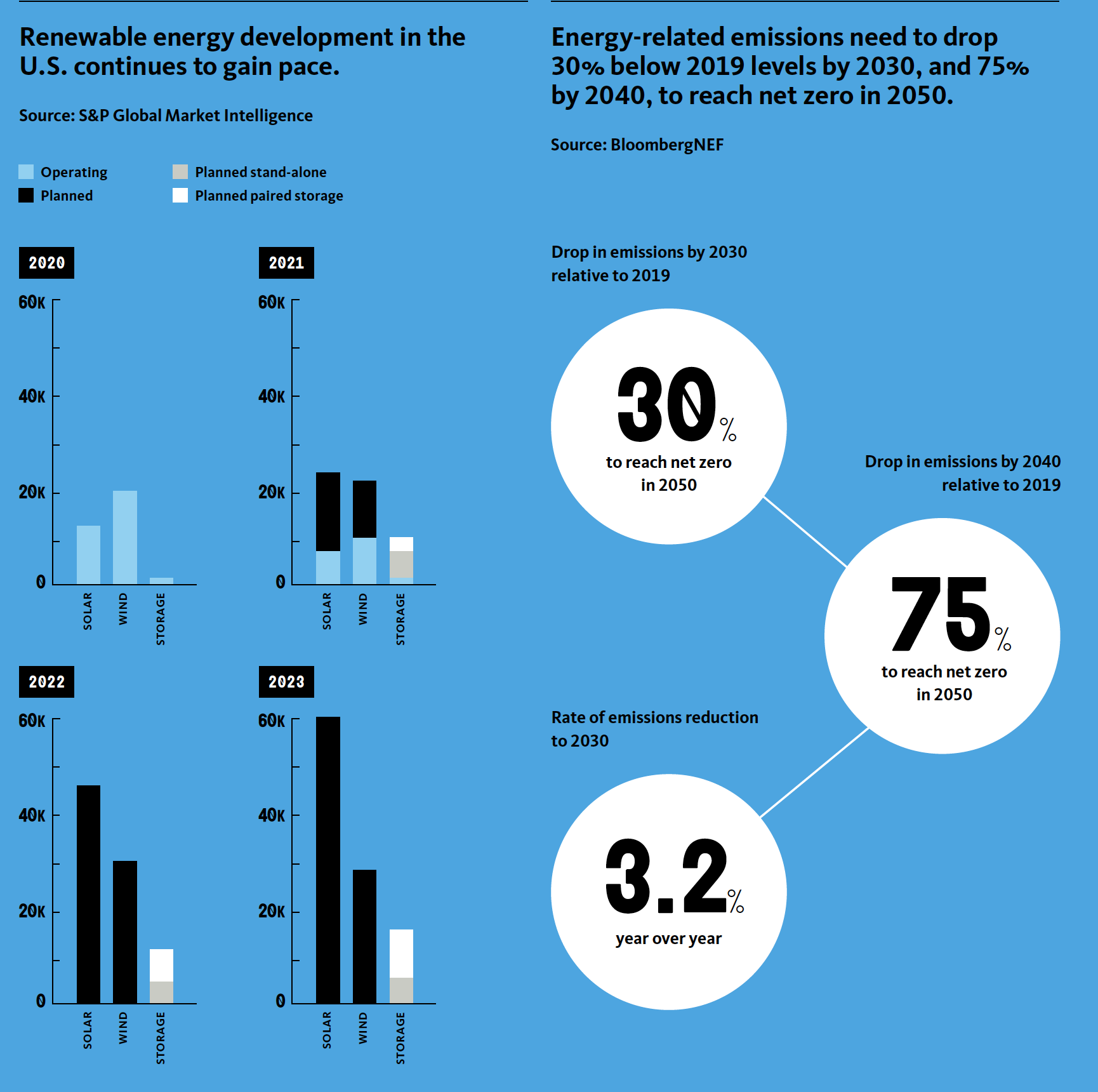
They see a world where innovation is accelerating, where cities are becoming more walkable and greener, where holistic design places greater emphasis on enhancing human experience, and where places “honor local context, while considering the health of occupants and planet alike.” To that end, Gensler has taken action to improve long-term resilience and sustainability of the construction industry’s supply chain by developing a new “blueprint” for specifying lower-carbon products and promoting locally extracted and manufactured materials. Gensler’s stated goal is to achieve carbon neutrality in all its work within a decade. “Never has there been a greater opportunity for the building industry to act on climate change,” the Report states.
STARTLING STATISTICS
The 91-page Design Forecast is a reservoir of information, some of which are likely to stop readers in their tracks. For example, one of the Health sector’s demographic predicaments is that, for the first time in human history, more of the population will be over 65 years old than under 18. “This changes everything,” states Gensler, in terms of how healthcare facilities will be designed to function and serve their constituencies.
Another stat, based on Gensler’ own research, found that fewer than half of the people surveyed in 15 locations are optimistic about their cities’ futures. And in its prognosis for the future of the workplace, Gensler—again drawing from its own research—estimates that, at a time when demand for commercial real estate is in flux, top-performing companies are three times more likely to increase their real estate footprint.
Sprinkled throughout the Forecast are images of Gensler’s projects that, according to the firm, have responded to different needs. For example, the Nashville entertainment district Fifth + Broadway addresses what people want from cities: convenience, community, and accessibility. This mixed-use district blends retail, workplace, residential, restaurants, music, and sports. In Austin, a 140,000-sf built-to-suit office building for Whole Foods Market’s headquarters features extended floor plates that provide interior protection from the sun, public areas with biophilic elements, and an outdoor terrace that doubles as alternative workspace.
20 METATRENDS IN PLAY
Gensler’s Design Forecast revolves around its identification of metatrends that it believes will influence client demand and the firm’s work in each of its sectors and practices. Some of these trends are not new, but have yet to achieve fruition, or have been recast by events such as the COVID-19 pandemic or the so-called Great Resignation that is restirring the job market.
The metatrends, in short, are predicted as follows:
Cities:
•A flexible public realm will deliver a more resilient future
•20-minute neighborhoods will drive equity
•Climate action demands will advance a path to net-zero
•Cities and organizations will refocus on regeneration and reuse
•Innovation districts will continue to thrive
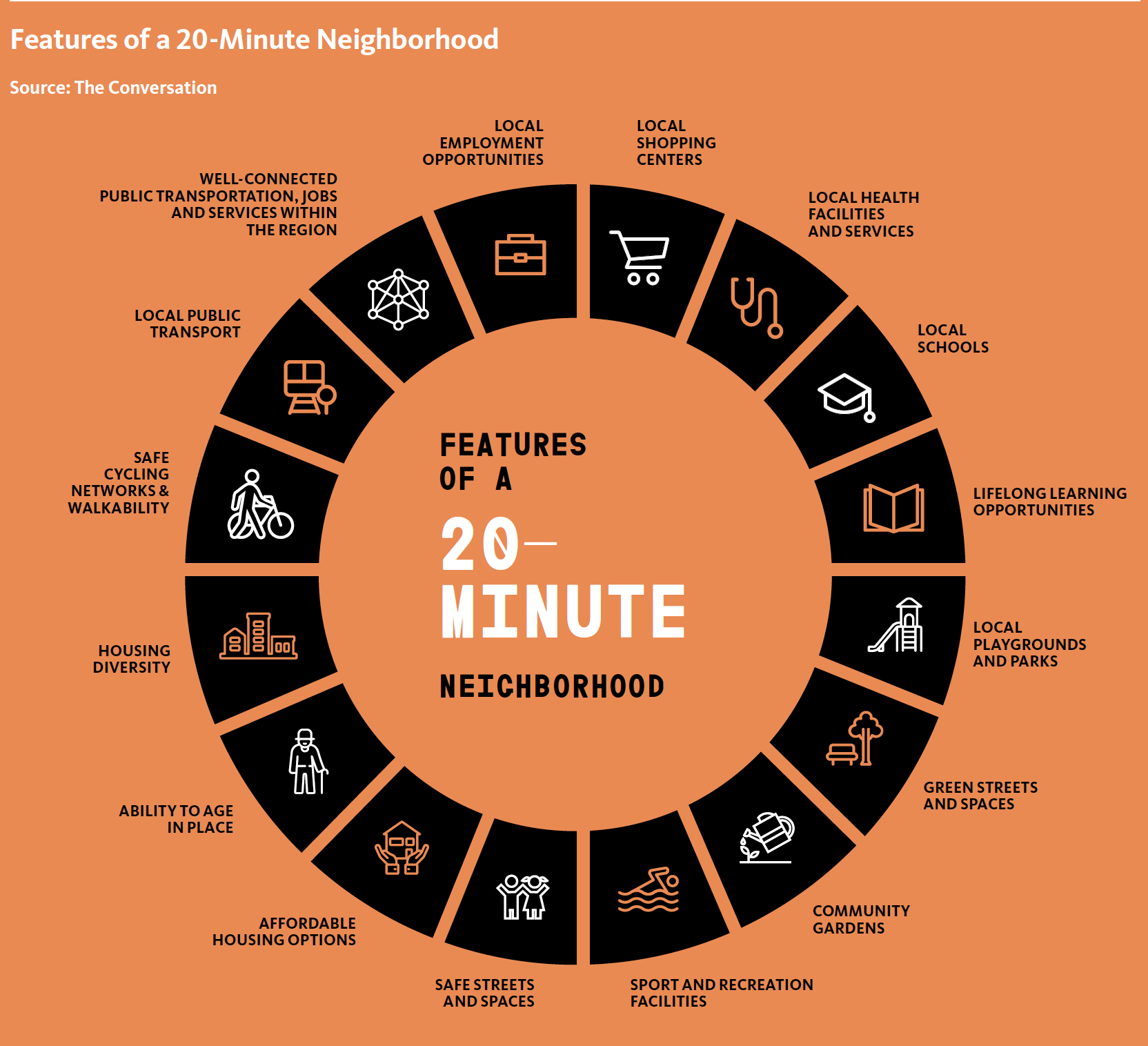
Workplace:
•The workplace must be a compelling destination
•Experimentation, prototypes, and learning are the new normals
•The workspace will play a critical role in fostering equity and inclusion
•The new workspace ecosystem will include “third” spaces for such things as coworking
•Investments in health and well-being will deliver value for employees
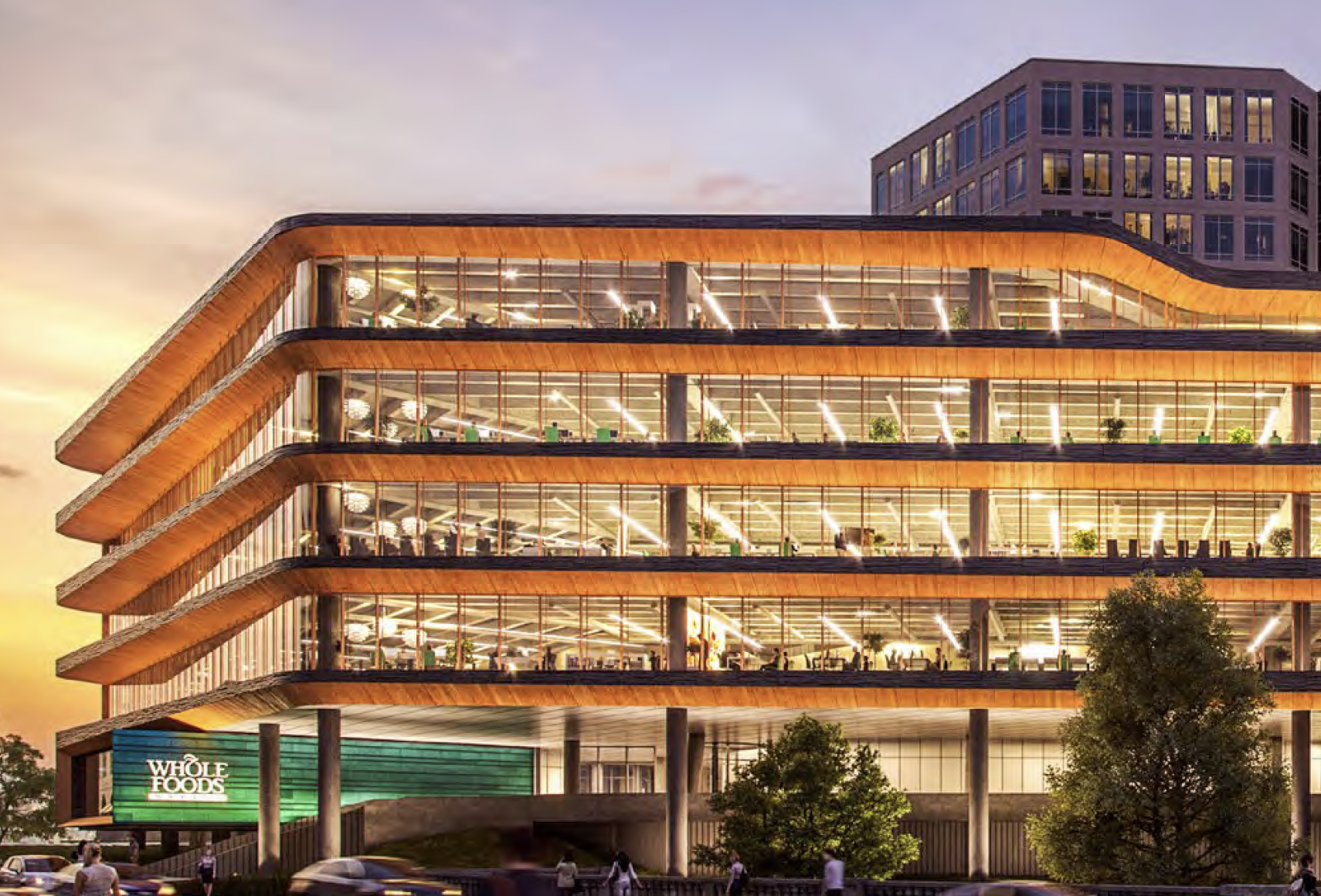
Lifestyle:
•Belonging and placemaking will bring people together
•Amenities that drive community will be highly valued
•Flexibility will become a critical investment
•Digital and physical will blend to deliver connected experiences
•Places for gathering will become neighborhood catalysts
Health:
•Design for resilience, and design that elevates human health, are one in the same
•More of the population will be over 65 than under 18 for the first time in human history
•Science organizations will set the tone for how we act in climate change and health
•Existing aging building stock cannot be ignored
•Designing “to the edges” of society will create more welcoming and supportive environments.
The report does deeper dives into each of its practices to signal dynamics and to suggest viable design strategies. Take data centers, upon which the world’s information, research, financial, and ecommerce grids increasingly rely: while acknowledging that hyperscale data centers account for half of the total investment in that sector, Gensler hops on the edge bandwagon, proclaiming edge data centers as “the next frontier” that will feed the growth of next-generation technologies. This sector is also looking for ways to reduce its energy consumption and carbon footprint by embracing low-impact materials and energy recovery. Gensler talks up the benefits of designing data centers for immersive cooling systems that submerge servers in liquid.
Related Stories
Giants 400 | Sep 8, 2022
Top 115 Hotel Sector Architecture + AE Firms for 2022
Gensler, WATG, HKS, and Stantec top the ranking of the nation's largest hotel and resort sector architecture and architecture/engineering (AE) firms for 2022, as reported in Building Design+Construction's 2022 Giants 400 Report.
Senior Living Design | Sep 8, 2022
What’s new with AQ: The top trends in active adult living
Today's 55-or-better buyers are ready to design their lives and their homes as they see fit. With so much growth on tap, builders and developers must stay apprised of trends related to home, environment, and culture of 55+ communities.
Sports and Recreational Facilities | Sep 8, 2022
Chicago Bears unveil preliminary master plan for suburban stadium district
As the 2022 NFL season kicks off, the league’s original franchise is fortifying plans to leave its landmark lakefront stadium for a multi-billion-dollar mixed-use stadium district in northwest suburban Arlington Heights.
| Sep 8, 2022
The Twin Cities’ LGBTQ health clinic moves into a new and improved facility
For more than 50 years, Family Tree Clinic has provided reproductive and sexual health services to underserved populations—from part of an old schoolhouse, until recently.
| Sep 8, 2022
U.S. construction costs expected to rise 14% year over year by close of 2022
Coldwell Banker Richard Ellis (CBRE) is forecasting a 14.1% year-on-year increase in U.S. construction costs by the close of 2022.
Giants 400 | Sep 7, 2022
Top 95 Industrial Sector Architecture + AE Firms for 2022
Ware Malcomb, Stantec, Haskell, and Macgregor Associates Architects top the ranking of the nation's largest industrial facility sector architecture and architecture/engineering (AE) firms for 2022, as reported in Building Design+Construction's 2022 Giants 400 Report.
| Sep 7, 2022
Use of GBCI building performance tools rapidly expanding
More than seven billion square feet of project space is now being tracked using Green Business Certification Inc.’s (GBCI’s) Arc performance platform.
| Sep 7, 2022
K-8 school will help students learn by conducting expeditions in their own communities
In August, SHP, an architecture, design, and engineering firm, broke ground on the new Peck Expeditionary Learning School in Greensboro, N.C. Guilford County Schools, one of the country’s 50 largest school districts, tapped SHP based on its track record of educational design.
| Sep 6, 2022
Herbert V. Kohler, Jr. (1939-2022) An incomparable spirit
Dynamic leader and Kohler Co. Executive Chairman Herbert Vollrath Kohler, Jr. passed away on September 3, 2022, in Kohler, Wisconsin.
| Sep 6, 2022
Demand for flexible workspace reaches all-time high
Demand for flexible workspace including coworking options has never been higher, according to a survey from Yardi Kube, a space management software provider that is part of Yardi Systems.


